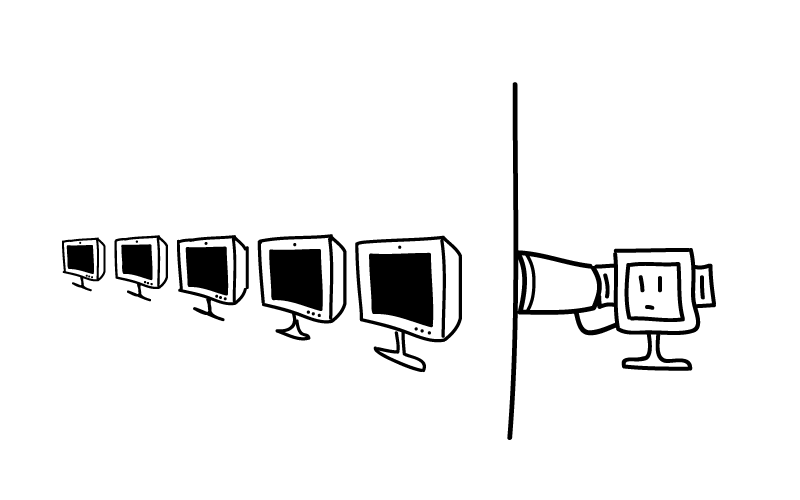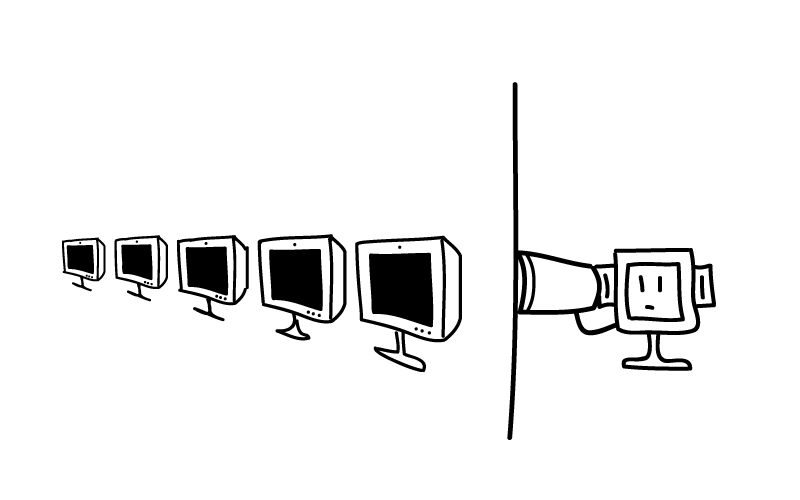Basically
This week, 82 Chibok schoolgirls went home. Le Pen was trounced. Jordan Edward’s murderer was charged. Republicans progressed and celebrated the end of healthcare. Costumes abounded for the Met Gala and the Kentucky Derby (nicely done, Always Dreaming). Everyone opened a stupid Google doc. Beijing ate so much sand. And Prince Philip announced his retirement, marking the end of our lifelong dream: nudes of a 95-year-old holidaying in St-Tropez. Done Dreaming, more like it.
Verbatim
New York assigned a small army of writers to a bold, sprawling attempt to understand the alt-right at a depth beyond facile explainer. This can be tricky to do without flinching, especially when your headline needs a footnote for "shitlord". But there’s a bunch of smart, useful stuff in here that’s worth spending time with. It’s a quagmire—step on in.
The movement is not a monolith — though it would also never be mistaken for a rainbow coalition — and part of what we’ve focused on is just how the various wings work together in concert. How does Steve Bannon relate to Russia Today, and what do conspiracy theorists have in common with pickup artists and Nazi Furries? How do memes like milk become weaponized, and just when did 4chan get political? How do its beliefs get amplified into the larger culture? For all its theoretical anti-modernity, the alt-right is a uniquely modern movement, after all, enabled in reach by the connective tools of the social internet and by the clever use of the sort of irony that every young American raised on TV and memes recognizes as our pop-culture lingua franca. It’s an irony they’ve used as armor, too: If you take them seriously, they’ll claim you missed the joke.

Things
Brad Pitt crying in a $1060 Prada sweater-vest whilst performing some kind of interpretative desert dance, with sand all over his face, is very annoying. Glorifying an abusive alcoholic for a conspicuously false sense of humility (explained by a matcha tea routine) serves only as a reminder of what won’t go away. And, predictably, could only have been written by a man for a man. Bummer, GQ.
The Outline investigates whether the New York Times’ culling of genre best-seller lists three months ago has led to a decline in actual sales for the likes of comics and romance novels. Correlation isn’t causation, sure, but something noticeable seems to have happened and it’s not good for the indies. A space on the Gray Lady’s lists might not seem to mean all that much anymore, but the entire ossified industry still makes decisions around them—from speaking gigs and media presence through shelf positions in stores. Like powerful old men smoking cigars in dimly-lit wood-panelled New York offices, some publishing traditions are undisruptable, regardless of reality.
Google Books’ Good Long Boondoggle.
Google Books’ Good Long Boondoggle.
Google Books’ Good Long Boondoggle.
Carole Cadwalladr’s ripping, terrifying Guardian investigation into Cambridge Analytica reads like the wall of an obsessed detective, bringing together so many disparate threads of our current geopolitical madness with push pins, red thread and frenzied circling of mysterious names. To put a wild story simply, it’s about a few billionaires who know an important thing: data is power, and we gave them everything we had.
We like to mock smart fridges and put-a-chip-in-it culture for many reasons here at Buckslip (presented without comment: Smalt), but language imperialism hasn’t generally been one of them. Unique, fragile languages like Icelandic are threatened on many fronts, of course, and friendly household bots who can’t understand a word of it don’t help at all. We urgently need algorithms that make the robots as proud as we were when we learned to say Eyjafjallajökull properly.
When the President tweets @everybody to say he's working from home: Rather than causing a big disruption in N.Y.C., I will be working out of my home in Bedminster, N.J. this weekend. Also saves country money!
Christopher Knight spent 27 years living in a tent in the wilds of Maine. In that time he developed strong opinions on the classics of hermit literature. Spoiler: Thoreau can go jump in a pond.
Our fractal fixation can be rationalized as an excuse to gaze out the window, resynchronizing our heartbeat with the harmony of the universe. But feels a bit like the underlying fractal nature of consciousness is less likely to be a question of if than how.
Despite a shaky couple of years, we’re long on $TWTR. The platform naturally accommodates vastly discrepant scales of communication often leveled as criticism: what does Twitter even do? By going public, the corporation formally, and unsuccessfully, internalized these voices. Perhaps $TWTR’s success requires that the (fractal?) self-similarity of the platform be embraced and extended further, right down to its ownership structure. #BuyTwitter might have a model for doing just that.
One-stop mall culture is in the DNA of brands like J. Crew, Gap, and Abercrombie & Fitch. They offer access to lifestyle through consumption—to adopt their style is to buy into an imaginary culture. But things are different now. The idea of a brand representing anything so completely is ridiculous. And now streetwear brands must be careful too; a brand cannot be style, lifestyle and (sub)culture. The people can be.
We’re running out of options to save the Great Barrier Reef, which is being rapidly and irrevocably destroyed by bleaching. Time to brighten the clouds?
On this Sunday afternoon, images of scientists on ocean liners firing salt into the sky also compel us to link to one of the greatest music videos of all time—Kate Bush, Donald Sutherland, Terry Gilliam and Wilhelm Reich taking on the sky together. For the sake of the Reef, we just know that something good is going to happen.
Don’t worry so much. AI’s not out to replace you.
You’re free to enjoy the week. And if someone sent this to you, here's how to sign up for yourself.





